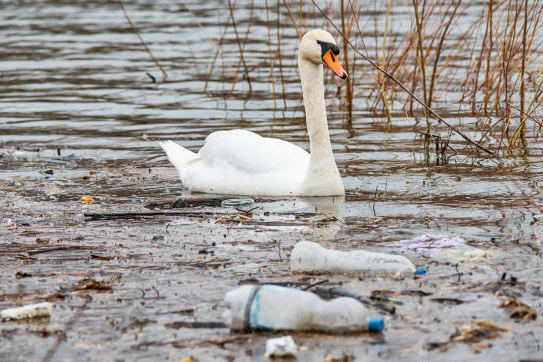Scapegoats
Mute Swans have been scapegoated for damaging wetland habitat and for reducing the territory and food sources available for other waterfowl. These claims are not substantiated by the research. In fact, it is human activity – including urbanization, industry, and pollution – that has left intact only a small fraction of the original wetland in the Lower Great Lakes and made ecosystems inhospitable for many plants and animals. Mute Swans do well in degraded environments – but their ability to thrive in them does not mean they caused the degradation.
Mute Swans are also often portrayed as aggressive toward humans and other animals. Like humans, swans are dedicated parents and protective of their young, but giving swan families space during the breeding season and keeping dogs on leashes can avoid and reduce conflicts.

Swans descended from the dinosaurs and have been on earth for 11 million years – about twice as long as humans. In Ontario, Canada, Mute Swans are a naturalized species that have reproduced in the wild for over 65 years and more than 18 generations. And yet, they are frequently referred to as “non-native,” “invasive,” and “alien.”
These characterizations have fatal consequences. Mute Swans’ eggs and nests are routinely destroyed by some conservation authorities in Ontario and adult Mute Swans are killed on federal and private property in Canada. Hunters are also lobbying the government to remove Mute Swans from the protection of a federal act.
The Mute Swan Society is dedicated to sharing evidence-informed and ethical perspectives on these birds and to advocating for their place in our wetlands.
Read more below on each of these issues and in a comprehensive Literature Review and Discussion Document (link opens in a new tab)
